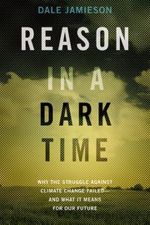 This guest post is by David Tong, an Auckland based community lawyer working on his Master’s in Law on the UN climate talks. He chairs the P3 Foundation and co-chairs the Aotearoa New Zealand Human Rights Lawyers Association, and last year tracked New Zealand’s climate negotiators as an Adopt a Negotiator Fellow.
This guest post is by David Tong, an Auckland based community lawyer working on his Master’s in Law on the UN climate talks. He chairs the P3 Foundation and co-chairs the Aotearoa New Zealand Human Rights Lawyers Association, and last year tracked New Zealand’s climate negotiators as an Adopt a Negotiator Fellow.
Nicky Hager’s Dirty Politics and the subsequent revelations have shaken New Zealand’s Government. On Saturday, Minister of Justice Judith Collins resigned, facing allegations of interfering with Serious Fraud Office investigations. On Sunday, the Inspector General of Security and Intelligence summonsed the Prime Minister — or perhaps just his Office — to appear before a hearing into the Dirty Politics allegations on 11 September 2014, just nine days before the election.
But three key ministers have escaped remarkably unscathed from the scandal: Ministers Tim Groser, Nick Smith, and Amy Adams. Tim Groser, our Minister for Climate Change Issues, has danced past the scandal without a speck of dirt. Minister for Conservation and Housing Nick Smith, who resigned as Minister for the Environment after admitting two relatively minor indiscretions must be spitting mad at how many final warnings Judith Collins flouted before resigning. Of the three, only Amy Adams faced a substantive allegation in Hager’s book, which alleges that she printed, scanned and forwarded an invitation accidentally sent to her by the Labour Party to Judith Collins, who then leaked it to the far right blogger at the heart of the scandal.
But compared to the other allegations in Dirty Politics — or even the past conflict of interest allegations levelled at Adams — these matters are minor. Hager’s book only mentions climate change once. Other emails show at most that Slater ran an ineffectual smear campaign against Generation Zero, which may or may not have been encouraged by Government figures. All this could be interpreted to mean our Government plays cleaner on climate change than it does at home.
That suggestion is wrong. Our domestic and international politics mirror each other. Dirty politics at home are mirrored by dirty tricks at the climate talks. The last few rounds of negotiations brim with examples.
Continue reading “We Play Dirty at the Climate Talks Too: New Zealand’s Dirty Politics of Climate”
Like this:
Like Loading...

 Dale Jamieson is a philosopher long acquainted with the work of climate scientists. His recently published book was begun 25 years ago, “an avocation that became an obsession”. He used to joke when asked why the book wasn’t appearing that he was waiting to see how the story ended. Then it dawned on him after the failed 2009 Copenhagen conference that there was no ending, and certainly not a happy one. The continuing journey is largely a matter of salvaging what we can from the wreckage. The book’s title sets the stark picture:
Dale Jamieson is a philosopher long acquainted with the work of climate scientists. His recently published book was begun 25 years ago, “an avocation that became an obsession”. He used to joke when asked why the book wasn’t appearing that he was waiting to see how the story ended. Then it dawned on him after the failed 2009 Copenhagen conference that there was no ending, and certainly not a happy one. The continuing journey is largely a matter of salvaging what we can from the wreckage. The book’s title sets the stark picture:  This guest post is by David Tong, an Auckland based community lawyer working on his Master’s in Law on the UN climate talks. He chairs the P3 Foundation and co-chairs the Aotearoa New Zealand Human Rights Lawyers Association, and last year tracked New Zealand’s climate negotiators as an Adopt a Negotiator Fellow.
This guest post is by David Tong, an Auckland based community lawyer working on his Master’s in Law on the UN climate talks. He chairs the P3 Foundation and co-chairs the Aotearoa New Zealand Human Rights Lawyers Association, and last year tracked New Zealand’s climate negotiators as an Adopt a Negotiator Fellow. This guest post is by
This guest post is by  It was always going to be difficult to avoid writing more about the impact of Nicky Hager’s Dirty Politics and what it tells us about the way the present government and its supporters have behaved, so in my post at The Daily Blog this week —
It was always going to be difficult to avoid writing more about the impact of Nicky Hager’s Dirty Politics and what it tells us about the way the present government and its supporters have behaved, so in my post at The Daily Blog this week —